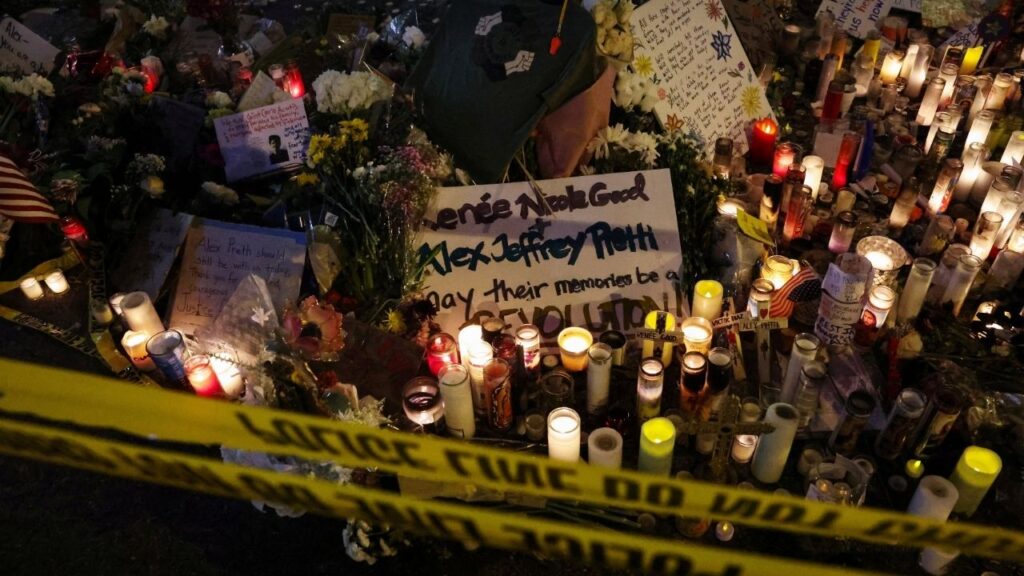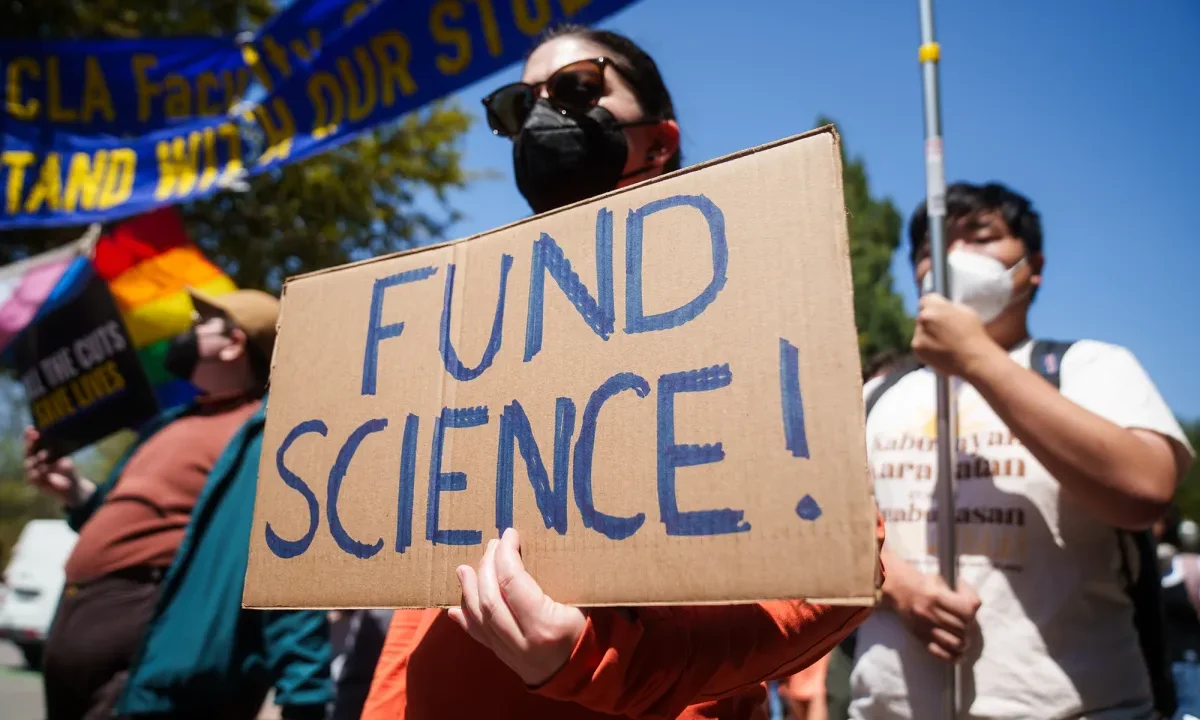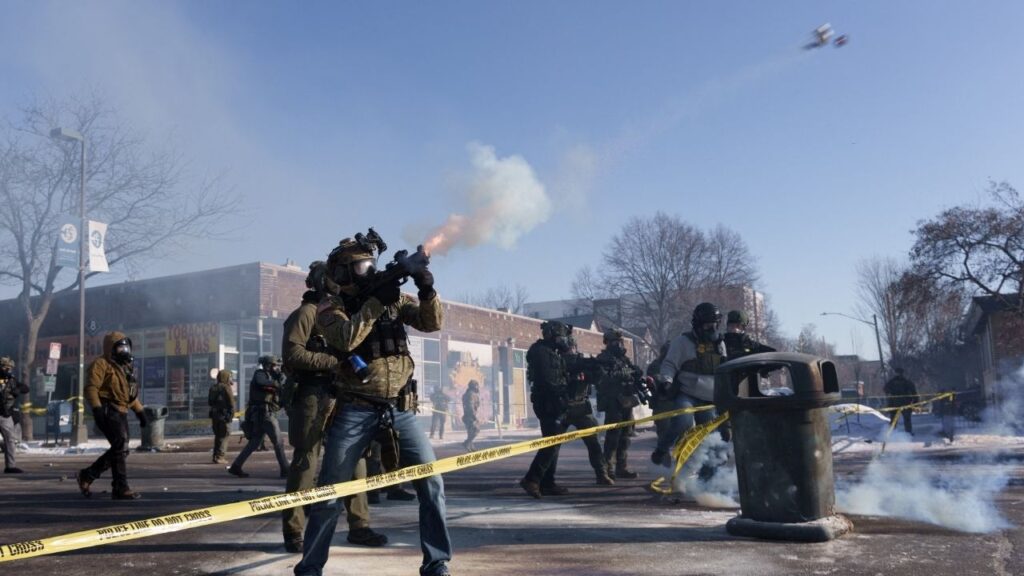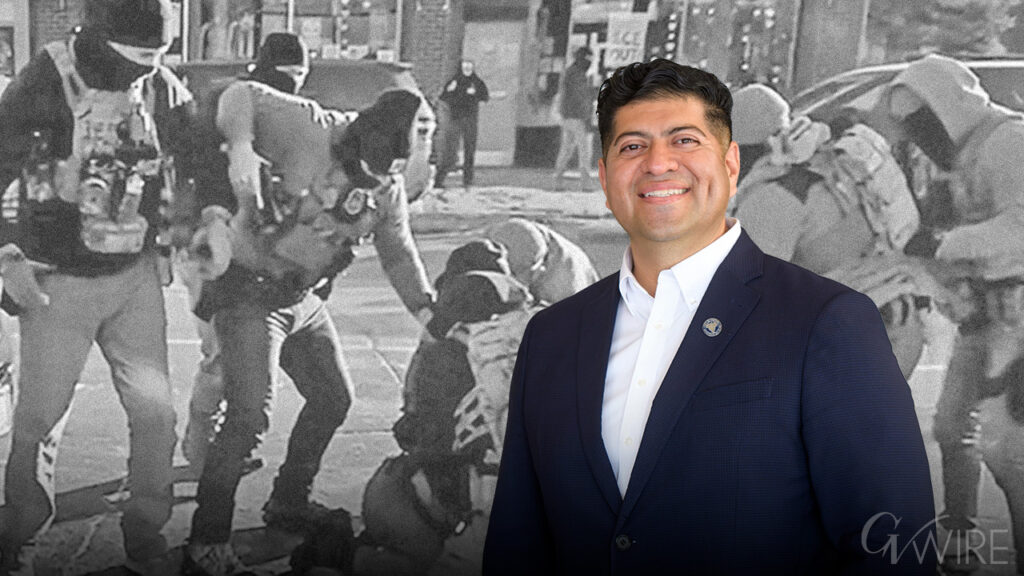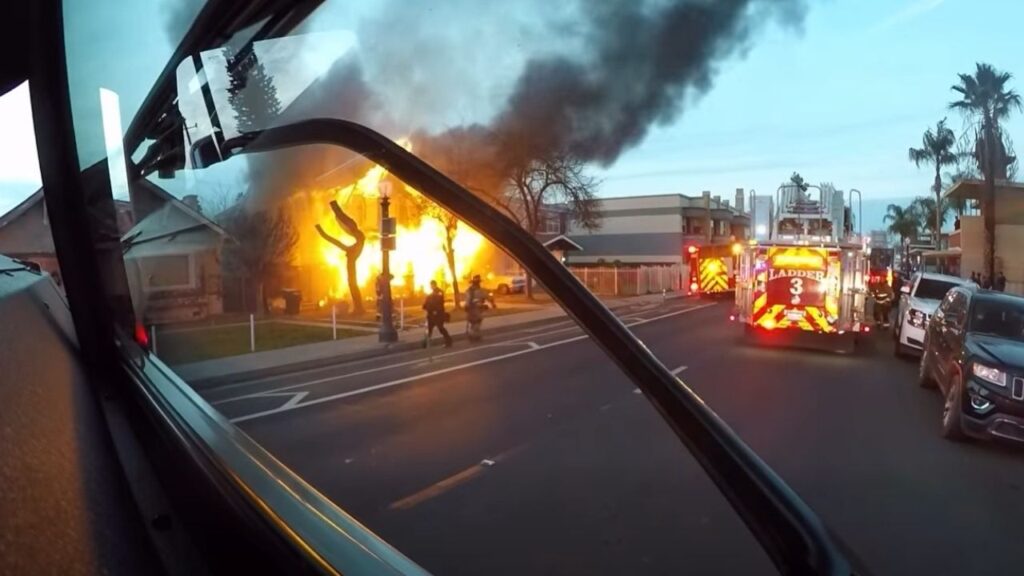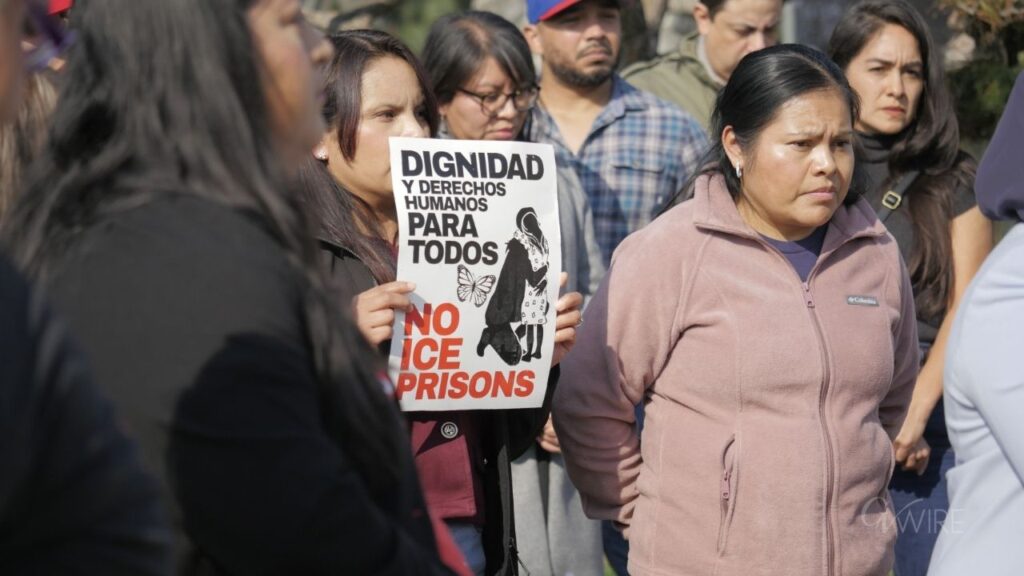Participants in the “Kill the Cuts” rally march against the Trump administration’s proposed research funding cuts in Los Angeles, April 8, 2025. (CalMatters/Jules Hotz/File)

- Federal judge orders Trump administration to restore 500 National Institutes of Health grants suspended at UCLA over antisemitism claims.
- Judge Rita Lin’s decision provides researchers a major respite as UCLA and UC leaders contend with Trump’s demands for a $1.2 billion settlement.
- Trump’s settlement demand “does not make Jewish students safer,” the Jewish Public Affairs Committee of California said in a statement last month.
Share
|
Getting your Trinity Audio player ready...
|
This story was originally published by CalMatters. Sign up for their newsletters.
A federal judge in California on Monday ordered the Trump administration to restore 500 National Institutes of Health grants that it suspended at UCLA in July over accusations the campus tolerates antisemitism.
Judge Rita Lin’s decision provides researchers at the university a major respite as UCLA and University of California leaders contend with Trump’s demands for a $1.2 billion settlement over a litany of accusations, including that the campus permits antisemitism. It’s a claim that more than 600 Jewish members of the University of California community in a public letter say is “misguided and punitive.” Meanwhile, UCLA’s leadership highlighted its efforts to combat antisemitism days before Trump’s settlement demands.
“Cutting off hundreds of millions of research funds will do nothing to make UCLA safer for Jews nor diminish antisemitism in the world,” the public letter signed by UC Jewish professors, students, staff and alumni says.
Last week several UC faculty groups and unions sued to halt the administration from pursuing its settlement demands, describing them as an “unlawful threat of federal funding cuts” to “illegally coerce the UC into suppressing free speech and academic freedom rights.”
Lin’s decision follows her string of orders since June that have restored hundreds of other UC research grants from multiple agencies. Her injunction is preliminary; the trial is ongoing.
Monday’s action restores virtually all of the 800 UCLA science grants the government froze in July — a value of more than $500 million. Lin’s order today of restoring 500 National Institutes of Health grants follows her decision last month that 300 National Science Foundation grants suspended in July be restored. The federal government complied with her August order by reversing the freezes.
The science grants pay for research into life-saving drugs, dementia, heart disease in rural areas, robotics education and a whole gamut of science inquiries across the country. They help fuel the country’s research enterprise and are the top source of federal research grants at the UC. The UC system has battled the Trump administration over various efforts to slash its funding since President Donald Trump’s second term began. The science funding is also a key source of income and training for graduate students, who are the next generation of publicly funded academics.
Lin’s latest order also restores three Department of Transportation grants and an unknown number of Department of Defense grants that the Trump administration terminated this year.
Lin gave lawyers for the Trump administration until Sept. 29 to submit a report confirming that they complied with her orders to restore the grants.
How We Got Here
In June, Lin issued a preliminary injunction, later upheld by the Ninth Circuit Court of Appeals, that ordered the Trump administration to restore 114 National Science Foundation grants and several dozen other grants from the Environmental Protection Agency and National Endowment for the Humanities at all UC campuses.
Then in August, Lin sided with the lawyers for the researchers in undoing the funding freezes for the 300 National Science Foundation grants. The lawyers argued that the Trump administration’s surprising decision in late July to suspend those grants violated Lin’s June injunction.
Lin’s latest order similarly says that the federal government violated her June preliminary injunction when it suspended the 500 National Institutes of Health grants at UCLA, also in late July. Core to her rationale is that the science agencies terminated UC grants en masse, in violation of a law, the Administrative Procedure Act, that requires federal agencies to explain in individual detail why the grants were terminated. Her rationale echoes other federal district court rulings about grant terminations.
How This Relates to Recent Supreme Court Decision
Lin’s decision also creates a potential opening for other researchers seeking to challenge their grant terminations after an August U.S. Supreme Court decision seemingly made that process harder.
In that decision, the high court said the right venue to sue to get a defunded grant restored is the little-known Court of Federal Claims, not a traditional district court. A slim majority of justices said that plaintiffs need to argue in the Court of Federal Claims to get their money back while they argue in a traditional district court to challenge the policy that led to the grant’s termination in the first place.
But Lin concluded that that Supreme Court decision can’t apply to the UC researchers because of a quirk in who can file suit in the Court of Federal Claims. Because research grants are contracts between a university and the federal government, only universities have “standing” to bring a suit to the Court of Federal Claims. The Supreme Court decision didn’t take on the issue of individuals, Lin wrote, but the high court justices still believed plaintiffs should have some way to argue that their funding should be restored.
Here’s how Lin’s order creates an opening: Lawyers for the federal government argued to Lin that because the plaintiffs are individual UC researchers and not the UC campuses themselves, they can’t sue at all to restore their grant funding. Only the universities could sue on their behalf, the federal lawyers argued. But Lin balked at that rationale at the Thursday hearing and in her written order today.
“The district courts are the only forum where the UC researchers could defend their constitutional and statutory rights, and the Ninth Circuit has already determined that they may bring their claims here. This Court will not shut its doors to them,” Lin wrote.
She added in her written order that the lawyers for the federal government presented an “extreme” view that the researchers couldn’t sue anywhere, even in the hypothetical scenario in which the federal government terminated “the federal funding of all Black researchers, or every researcher with an Asian last name — and the researchers would have nowhere to sue to undo those wrongs, unless their universities decided to sue in the Court of Federal Claims.”
What the Trump Administration Has Argued
In justifying the grant suspensions in July, the National Science Foundation and National Institutes of Health each sent UCLA letters accusing the university of using race-based admissions, allowing transgender women to compete in women’s sports and not doing enough to address antisemitism on its campus.
But California barred public campuses from admitting students based on race in 1996 when voters through a ballot measure ended the practice. Representatives from the two science agencies wrote in July that though UCLA maintains it doesn’t use affirmative action, its “holistic review” admissions process is de-facto race-based admissions.
The letter from the National Science Foundation said the agency believes that “UCLA’s ‘holistic review’ admissions process, which considers factors such as an applicant’s neighborhood/zip code, family income, and school profile — and invites the disclosure of an applicant’s race via personal statements — is a transparent attempt to engage in race-based admissions in all but name.” The letter from the National Institutes of Health was virtually identical.
While the Supreme Court in 2023 overturned the use of race in college admissions in a 6-3 decision, Chief Justice John Roberts wrote that students are free to discuss their identities and how they overcame hardships in admissions essays.
“Nothing in this opinion should be construed as prohibiting universities from considering an applicant’s discussion of how race affected his or her life, be it through discrimination, inspiration, or otherwise,” Roberts wrote.
All three criticisms in the agencies’ July letters match the policies Trump is pursuing through executive actions to reshape higher education and the federal government. They also mirror the policy playbook fleshed out in Project 2025, a conservative publication that has shaped Trump’s current term in office.
UCLA Addresses Antisemitism
The UCLA grant suspensions followed a federal Department of Justice report in July that accused the campus of not doing enough to address antisemitism, particularly related to events during last year’s pro-Palestine protests and encampment. The report came months after UCLA commissioned a task force to investigate antisemitism on campus and come up with recommendations that UCLA leaders said they’d implement.
Students and faculty protesting Israel’s war in Gaza have themselves accused UCLA of bias against them, including Arab, Muslim and Jewish UCLA community members.
Trump’s settlement demand “does not make Jewish students safer,” the Jewish Public Affairs Committee of California said in a statement last month. The advocacy group is composed of 39 organizations that offer family services, political advocacy, immigration legal aid and other services.
The Jewish public affairs committee acknowledged several strides UC and UCLA made to curtail antisemitism and promote safer campuses. “Meaningful progress is already underway in California,” the group wrote.
This article was originally published on CalMatters and was republished under the Creative Commons Attribution-NonCommercial-NoDerivatives license.
RELATED TOPICS:
Categories

Fresno DUI Crash on Highway 99 Kills Pedestrian, Driver Arrested
